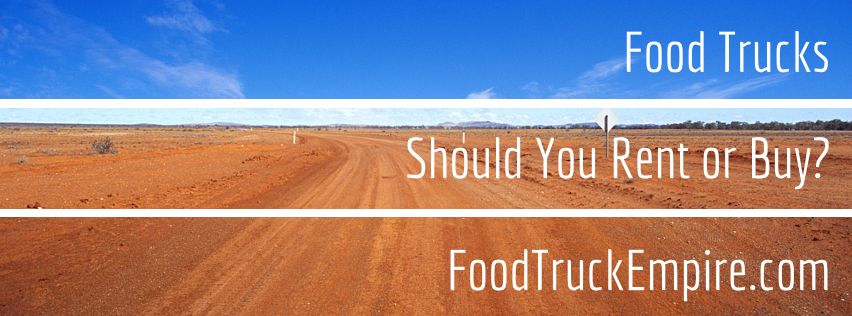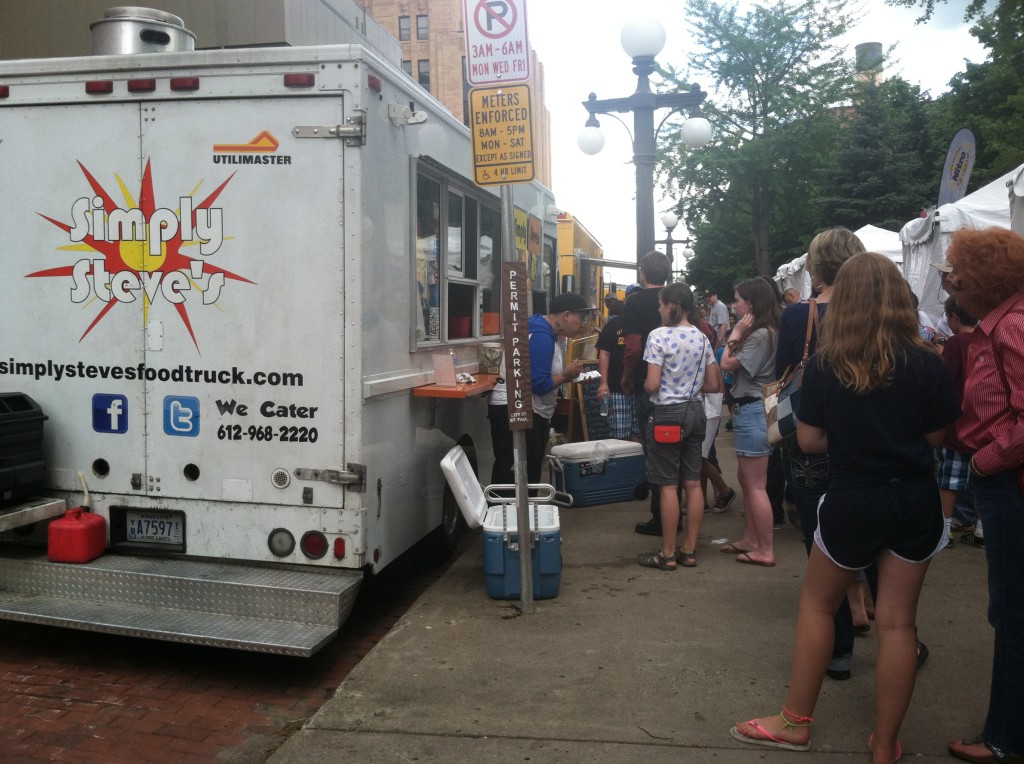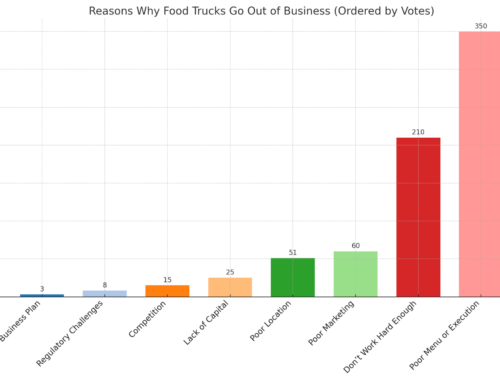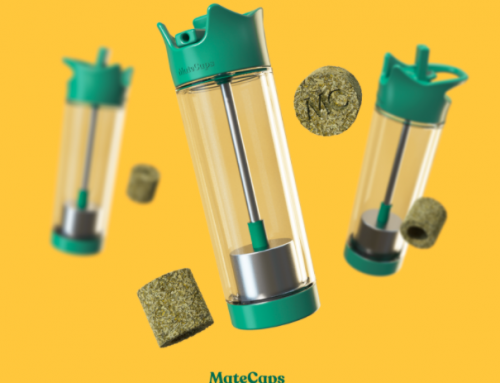 While investing in a food truck requires a considerably lower investment than a traditional restaurant, as with any new business there is an inherent risk. This is particularly true if you’ve got a edgy food concept that is yet to be proven… Meaning you haven’t actually tried to sell any product to real customers at this time.
While investing in a food truck requires a considerably lower investment than a traditional restaurant, as with any new business there is an inherent risk. This is particularly true if you’ve got a edgy food concept that is yet to be proven… Meaning you haven’t actually tried to sell any product to real customers at this time.
Fortunately, if you’re thinking about starting a food-truck business, but don’t want to put $50,000 – $100,000 of your life savings into a concept there is another way: renting a food truck.
By renting a food truck you have the flexibility to change menu items, test different marketing strategies and figure out if you actually want to operate a truck for the next 4 – 5 years with minimal risk. In fact, the only thing you’ll risk is the cost of renting the vehicle, which can be much more manageable. If the food concept fails or you decide you don’t enjoy running this type of business you can just return the truck. On the other hand, if you’re concept does take off you’ll be able to justify the purchase.
To learn more about the pros and cons of buying versus renting Food Truck Empire (FTE) connected with Josh Hiller of RoadStoves.com and FoodTruckRental.com. Josh’s company has their hands in both the rental and manufacturing side of concession trucks and understands the right situation to rent and the right time to buy. Don’t invest in a food truck until you read this Q/A interview.
FTE:What’s the most frequently asked question you receive from people considering an investment in a food truck?
Josh Hiller: The most common question is some form of “how much money do food trucks make?” Honestly I don’t like answering that question directly because we really have to talk through the fact that, like any business, some will fail, some will break even and simply stop because it’s too much work for little or no return, and yes some will turn a profit.
So truly if you factor in the ones that go out of business, honestly the chances are there isn’t a huge pot of gold at the end of the rainbow. It’s similar to the restaurant business. But, yes there are the few that succeed financially beyond the odds.
FTE: What information should people organize before approaching a manufacturer to build a custom truck?
Josh Hiller: You should know what equipment you want in the truck, that really determines the size of the truck you need. You should also find a manufacturer that’s built trucks for the health department jurisdiction(s) that you want to operate in. Generally the manufacturer will handle the health department approval process. But again, as in any business, you should know yourself what the health department requires because at the end of the day it’s your business and you shouldn’t rely on others to take care of it.
What type of person should be buying a food truck? What are some of the advantages of buying versus renting? Buying a truck is a big financial investment. Like in any business, you should know the business climate / future well before investing large sums of money in it. So, if someone has been in the food truck business for a little while, seen the ebs and flows, learned about their market, their revenue, etc., at that point it can be time for investing in the purchase of a truck (assuming they’re committed to it for at least the next five to ten or so). For anyone just starting out in the food truck business, I’d HIGHLY recommend renting so they can get an idea of whether the income is there, if the type of work is for them, and generally what it’s like operating a food truck through its business cycles.
FTE: type of person should be renting a food truck? What are some of the advantages of renting versus buying? How much (roughly) does it cost to rent a food truck per month?
Josh Hiller: Rental costs generally vary depending on the term / length of the lease. Assuming a person commits to a long term lease (figure 6 months or more), rentals should run ballpark $2k to $3k per month. That does not include commissary costs (which generally run around $1k to $1200 per month). Short term rentals are more costly because of risk, turn-over, etc.
Where can I go to rent a food truck? We have a couple options for rentals. At RoadStoves we rent out our own fleet of trucks, and we’ve actually just launched a new website where all food truck owners can list their trucks available for rent. It’s FoodTruckRental.com and it’s a platform that connects food truck renters direct to food truck owners. When renting a truck just keep in mind who’s responsible for costs like maintenance, insurance, permits, commissary utilities, cleaning, etc.
FTE: Can you cite a specific example of a food truck owner started by renting a food truck to test their food concept, found success, and transitioned to owning a truck after proving their concept?
Josh Hiller: To be completely honest, in my experience once people get a real understanding of what’s involved in owning a food truck (the maintenance costs, dealing with mechanics, break-downs, dealing with the Health Department, commissary costs, etc.) they generally prefer to stay as renters. However, on the traditional “taco truck” / “roach coach” side, you see far more renters become owners. That’s because they’ve spent years in this business, they know it well, and they’re committed to it for the long haul. Remember, even if you finance the purchase of a truck, you’re looking typically at 5 years before you pay off the truck, so it’s not until the 6th year and beyond that you’ll really see the financial benefit of owning.
FTE: At what point do you recommend taking the leap and transitioning from renting to purchasing a food truck of your own?
Josh Hiller: Generally speaking, I’d say once you have at least 2 to 3 years under your belt running your food truck. At that point you’ve gone through a couple winters, dealt with some competition, learned about the mechanical side of these trucks, understand the type of work, and hopefully built some kind of consistent following to where you have some predictability (as much as you can in any business) of how much income you can expect on a yearly basis.





